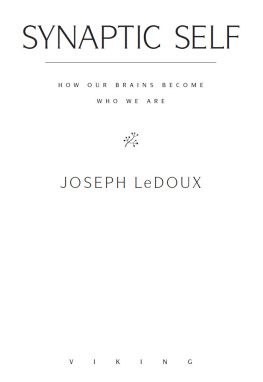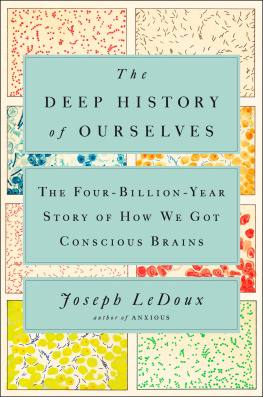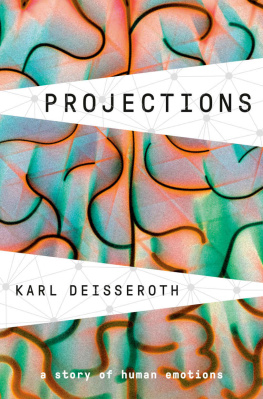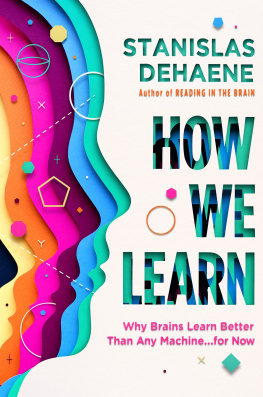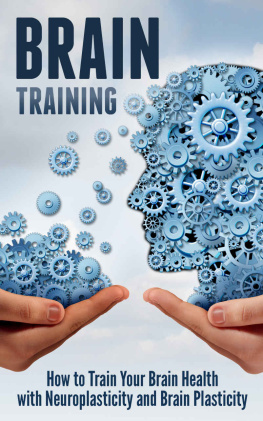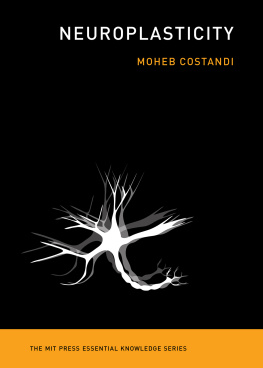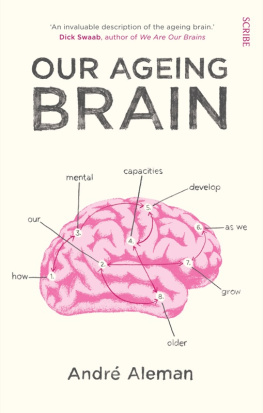SYNAPTIC SELF

ALSO BY JOSEPH LeDOUX
The Emotional Brain: The Mysterious Underpinnings of Emotional Life
The Integrated Mind (with Michael Gazzaniga)
Mind and Brain: Dialogues in Cognitive Neuroscience
(edited with William Hirst)
SYNAPTIC SELF

HOW OUR BRAINS BECOME
WHO WE ARE

JOSEPH LeDOUX

VIKING
Published by the Penguin Group
Penguin Putnam Inc., 375 Hudson Street, New York, New York 10014, U.S.A.
Penguin Books Ltd, 80 Strand, London WC2R 0RL, England
Penguin Books Australia Ltd, Ringwood, Victoria, Australia
Penguin Books Canada Ltd, 10 Alcorn Avenue, Toronto, Ontario, Canada M4V 3B2
Penguin Books (N.Z.) Ltd, 182190 Wairau Road, Auckland 10, New Zealand
Penguin Books Ltd, Registered Offices:
Harmondsworth, Middlesex, England
First published in 2002 by Viking Penguin,
a member of Penguin Putnam Inc.
Copyright Joseph LeDoux, 2002
All rights reserved
LIBRARY OF CONGRESS CATALOGING-IN-PUBLICATION DATA
LeDoux, Joseph E.
Synaptic self : how our brains become who we are / Joseph LeDoux.
p. cm.
ISBN: 978-1-440-65042-0
1. Personality. 2. Self. 3. Neuropsychology. I. Title.
QP402 .L43 2002
612.82dc21 2001045356
Designed by Carla Bolte
Without limiting the rights under copyright reserved above, no part of this publication may be reproduced, stored in or introduced into a retrieval system, or transmitted, in any form or by any means (electronic, mechanical, photocopying, recording or otherwise), without the prior written permission of both the copyright owner and the above publisher of this book.
Version_3
FOR NANCY
ACKNOWLEDGMENTS
The bottom-line point of this book is You are your synapses. Synapses are the spaces between brain cells, but are much more. They are the channels of communication between brain cells, and the means by which most of what the brain does is accomplished.
To propose a synaptic explanation of the self, I had to discuss in some detail how the brain works. Ive tried to do this without trivializing the factsits not a pop psychology, how-to, or self-help book. Although writing about the brain in a way that will be clear to lay readers and at the same time not insulting to other scientists is tough, Im pleased with the result.
But I didnt achieve this goal alone. My wife, Nancy Princenthal, is an art critic, and a fantastic writer. She constantly urged me to use words economically, and to avoid repetition. She read and reread, each time (often to my annoyance) with a sharpened pencil in hand. And when I had finally met her critical approval, I turned the manuscript over to Rick Kot, my editor at Viking. It was great to have a pro like Rick on my side.
I also want to thank present and past members of my lab. Without their creativity and hard work, the science that inspired me to write Synaptic Self would not exist. And the work could not have been done without the generous support of the National Institute of Mental Health, New York University, the W. H. Keck Foundation, and the Henry and Lucy Moses Fund.
Im also grateful to colleagues who read certain chapters and commented on them. Thanks to Yadin Dudai, Jacek Debiec, Karim Nader, Greg Sullivan, and Rafi Lamprecht. In addition, several colleagues consulted with me on specific topics, including Tony Movshon, Carla Shatz, Dan Sanes, Jerome Kagan, Tim Wilson, Stephen Happel, Nancey Murphy, Barry Everitt, Norm White, Sandra File, Justine Kent, David Silbersweig, Jack Gorman, Amy Arnsten, Liz Phelps, and Jonathan Cohen.
Will Chang went above and beyond on the Works Cited list. And Mian Hou and Claudia Farb made indispensable contributions to the illustrations.
Brett Kelly, Rick Kots assistant at Viking, was also very helpful throughout. Special thanks to Barbara Campo and Carla Bolte at Viking for their thoroughness and their patience with my corrections and to Don Homolka, an eagle-eyed copy editor.
I also want to express my gratitude to my agents, Katinka Matson and John Brockman. I greatly appreciate their advice and support.
Finally, I thank my children, Jacob and Milo. They inspire my synapses to change every day.
Writing a book is a humbling experience. You come to realize how many things you thought you understood but really didnt, at least not well enough to explain them clearly. I learned a tremendous amount while writing Synaptic Self, and hope you do too while reading it.

Note: Internet-equipped readers can visit the LeDoux Lab Home Page (www.cns.nyu.edu/ home/ledoux) for more information about my reasearch. Once there, it will be possible to navigate to the Synaptic Self page, where information relevant to the book is presented, including links to reviews and a full bibliographic listing.
CHAPTER ONE
THE BIG ONE
DAD, WHAT IS THE MIND? IS IT JUST A SYSTEM OF IMPULSES OR SOMETHING TANGIBLE?
Bart Simpson

I dont know, so maybe Im not, the T-shirt said. Had it been another time or place, I probably wouldve chuckled and moved on. But I was on Bourbon Street when this postmodern homage to Descartess proclamation, I think, therefore I am, appeared on a young man weaving toward me. I had just had dinner in the French Quarter after a long day of data digestion and schmoozing at the Society of Neuroscience Conference, an annual get-together of thirty thousand or so brain researchers from around the world. The sound of Dixieland tunes, the aroma of stale beer, and the sight of scantily clad women dancing on runways inside dark bars had me contemplating the years and life changes that had come and gone since I myself had weaved down Bourbon Street during my college days in Louisiana. I headed back to my hotel, reflecting on my past and present life and wondering about what, all of a sudden, seemed to me to be the big question brain researchers should be asking: What makes us who we are?
Neuroscience hasnt yet delved deeply into this puzzling issue. It has, for good reason, focused on how specific processes, like perception, memory, or emotion, work in the brain, but much less on how our brains make us who we are. Id venture a guess that if a random sample of neuroscientists were asked, What do we know about the brain mechanisms of the self and personality? the predominant answer would be Not much.
But maybe we know more than we think. Maybe some or even many pieces of the puzzle have already been discovered, and just have to be assembled into a coherent whole. Actually, I believe this might be the case. A lot of information is available about how the brain works, and while it may not yet be sufficient to fully explain persons, it should certainly encourage us to begin thinking about the problem.

